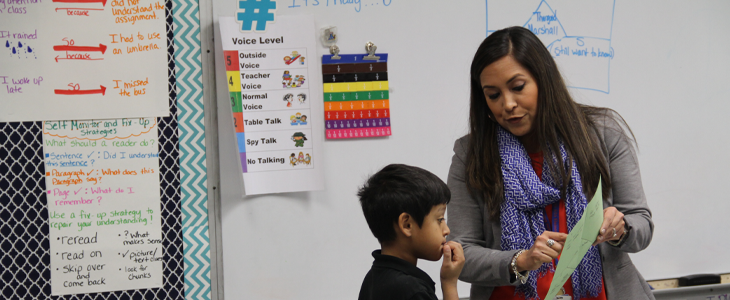Texas Test of Educator Proficiency


The Texas Test of Educator Proficiency (T-TEP) will be a Texas-specific teacher performance-based assessment for standard certification that fully implements the State Board for Educator Certification (SBEC)'s Texas Administrative Code Chapter 235 Subchapter C. Classroom Teacher Pedagogy Standards. This assessment is part of the SBEC’s broader strategy to improve Texas teacher preparation and ensure that Texas students have access to quality teachers.
T-TEP will require teacher candidates to submit authentic evidence that demonstrate pedagogical knowledge and skills related to planning and delivering instruction, fostering a safe and effective learning environment, assessing student growth and achievement, exhibiting professional behavior, and use of SBOE-approved high quality instructional materials (HQIM).
2024
April: SBEC directs TEA to pursue Texas-specific TPA development.
2025
January: T-TEP EPP Development Team Selection, Onboarding, and Training Grant launches.
May: T-TEP Development Awards announced.
October: T-TEP Content Review Committee (CRC) awarded.
2026
Continued development, field testing, and stakeholder feedback loops.
2027
September: T-TEP launches as the required pedagogy assessment. (Pending SBEC Action)
The State Board for Educator Certification (SBEC) was created by the Texas Legislature in 1995 to recognize public school educators as professionals and grant educators the authority to govern the standards of their profession. The board oversees all aspects of the preparation, certification, and standards of conduct of public school educators.
Current Meeting
Visit the SBEC Meetings page for agendas, public testimony registration, meeting locations, and archived meeting agendas.
Meeting Webcasts & Recordings
The TEA provides meeting webcasts for people interested in watching from a computer or device.
Meeting Minutes
Minutes are available from past SBEC meetings.
SBEC’s Journey Toward a Texas-Specific Teacher Performance Assessment
Since 2022, the SBEC has engaged in discussions related to the development of a Texas-specific teacher performance assessment. To help build context around T-TEP and the SBEC’s decision to move in this direction, please review each of the discussion items below:
July 2022, Item 4 (Linked here): The SBEC discussed feedback received by the State Board of Education (SBOE) and other stakeholders related to the implementation of a teacher performance assessment as a pedagogy certification exam. Two key trends in the feedback included (1) the need for a Texas-specific performance assessment and (2) the need to explore options for a performance assessment that could be developed locally via a Texas Institution of Higher Education (IHE) versus by a large vendor.
July 2023, Item 17 (Linked here): TEA staff shared a summary of feedback provided during the stakeholder sessions along with draft Texas-specific TPA components, informed by stakeholder feedback, for SBEC member input and feedback.
April 2024, Item 16 (Linked here): The SBEC directed TEA to pursue development of a teacher performance assessment option with Texas EPPs leading development.
In January 2025, TEA launched the 2024-2025 T-TEP EPP Development Team Selection, Onboarding, and Training Grant to select Texas educator preparation programs who would serve on the T-TEP EPP Development Team (TDT). Members of the TDT will design all exam components and aligned implementation resources for the Texas Test of Educator Proficiency (T-TEP).
The TDT is a team of experts to develop the content for the Texas Test of Educator Proficiency (T-TEP). The TDT will design all exam components and aligned implementation resources, participate in professional learning communities, and engage in learning calls and focus groups with districts and EPPs.
The following programs and faculty/staff members were selected to form the TDT:
- Region 10 Education Service Center Patricia Williams
- Region 13 Education Service Center Gabriela Lara
- Sam Houston State University Dr. Ashley Brittain
- Region 19 Education Service Center Elizabeth Bonilla
- Stephen F. Austin State University Dr. Susan Reily
- Region 20 Education Service Center Cynthia (Cindy) Dorsey
- Tarleton State University Dr. Crystal Rose
The T-TEP Content Review Committee (CRC) provides a key opportunity for relevant Texas stakeholders to provide valuable feedback to the development of T-TEP. CRC members will attend virtual sessions and provide feedback on assessment materials and implementation resources, and policies throughout the development of T-TEP.
Staff are available and quickly responding via the TEA Help Desk.
Please submit a Help Desk ticket through the link above or leave us a message at 512-463-9039.

